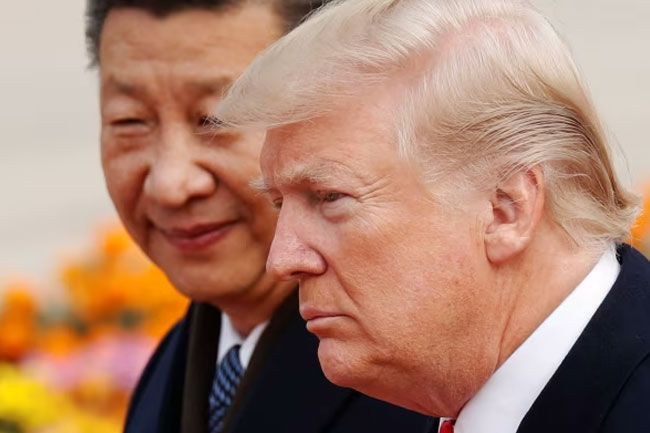Global Trade Turmoil: US-China Tensions Escalate
Explore the complexities and global implications of the escalating trade tensions between the US and China, involving retaliatory tariffs and political maneuvering amid calls for dialogue.
Published April 18, 2025 - 00:04am

Image recovered from adaderana.lk
The ongoing trade tensions between the United States and China have seen a dramatic escalation, with both countries imposing substantial tariffs on each other's goods. The White House announced that retaliatory actions from China have resulted in an increase of US tariffs on Chinese imports to a staggering 245 percent. This move is part of President Donald Trump's broader strategy to address what he perceives as national security risks and economic dependencies on foreign-sourced critical minerals such as cobalt, lithium, and nickel.
China, in turn, has retaliated with a 125 percent duty on American goods and has implemented additional bans on certain US exports, affecting aerospace manufacturers and military contractors. Despite this tension, China reported a 5.4 percent economic growth in the first quarter, signaling resilience amidst a complex global economic environment. Meanwhile, Trump insists that the onus to negotiate falls on China, urging them to make the first move towards resolving the trade conflict.
Adding to the international economic anxiety is geopolitical commentary from Japan. The Japanese government has expressed concerns over difficult negotiations with the US, pointing to heightened risks of inflation. The Federal Reserve has warned that these trade tensions could potentially lead to persistent inflationary pressures in the US economy. The fallout from these trade policies has also been reflected in currency markets, with the US dollar depreciating significantly against major currencies.
Meanwhile, the World Trade Organization has issued a sobering forecast, suggesting that ongoing US tariff policies could heavily impact American and Canadian growth, predicting significant reductions in both exports and imports. The implications extend beyond North America, as Trump's tariffs prompt retaliatory measures from other key trading partners, including the European Union and Mexico, intensifying an already fraught global trading landscape.
California has taken the unusual step of legally challenging Trump's tariff policies. State officials argue against what they describe as the 'unlawful imposition' of tariffs and highlight the chaos they cause for local businesses and consumers. Similarly, tech giant Nvidia anticipates financial losses due to US export restrictions on chips to China, highlighting the far-reaching impacts on the technology sector.
In Europe, the imposition of sector-specific tariffs on steel and aluminum, alongside the threats of tariffs on auto imports and pharmaceuticals, has created ripples of economic concern. President Xi Jinping of China has been actively engaging with Southeast Asian nations, aiming to solidify regional support against US trade pressures.
This complex web of trade disputes poses not only economic challenges but raises substantial geopolitical stakes. Analysts warn of a prolonged standoff that could reshape global trade norms and exacerbate existing economic vulnerabilities. Despite calls for dialogue and negotiation, the entrenched positions on both sides suggest that the resolution may not come swiftly, leaving global markets in a state of uncertainty.






